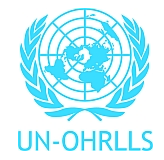This Guinean energy supply PPP in enables Goyola residents to pay for electricity with home grown produce instead of cash.
Energy provider ENDG stores the produce to sell it in the off-season.
All of the villagers have decided to participate in the project and all of them pay their bills on time.
 9 March 2012: The UN Office of the High Representative for the Least Developed Countries, Landlocked Developing Countries and Small Island Developing States (OHRLLS) has highlighted the success of a public-private energy supply partnership launched in Goyola, Guinea, in 2009, that enables Goyola residents to pay for electricity with home grown produce instead of cash.
9 March 2012: The UN Office of the High Representative for the Least Developed Countries, Landlocked Developing Countries and Small Island Developing States (OHRLLS) has highlighted the success of a public-private energy supply partnership launched in Goyola, Guinea, in 2009, that enables Goyola residents to pay for electricity with home grown produce instead of cash.
According to UN OHRLLS, the initiative was developed by La Société Électricité Nakoloma De Goyola (ENDG) and the Bureau for Decentralized Rural Electrification (BERD). Goyola is rich in agriculture, producing rice, maize, peanuts, coffee, bananas and palm oil, at differing times throughout the year. However, the village is a 6km walk to the nearest market, resulting in villagers being cash poor. Under the electrification scheme, ENDG sells electricity for agricultural produce at market value, stores it, and then sells it in the off-season. All of the villagers have decided to participate in the project and all of them pay their bills on time.
Goyola’s public-private partnership (PPP) model for scaling up rural access was recognized as a winner in the World Bank’s African Electrification Initiative Call for Papers on innovative solutions to Africa’s electrification challenges. Lessons learned from the Goyola initiative are now being shared with experts across Africa. [UN-OHRLLS Press Release]